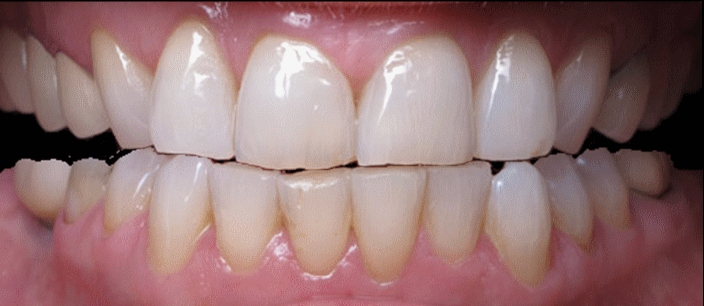20 – 40 million Americans grind their teeth at night. Chronic grinding or is bruxism can put as much as 200 pounds of pressure per square inch on your mouth
All that pressure isn’t good for your teeth and can eventually lead to damage that requires root canals, implants, or dentures.

The following written content from Andrea Schmitz, Rebecca Wilkin
Thirty to 40 million Americans grind their teeth at night. That’s roughly 10% of the US population, and chronic teeth grinding can lead to painful issues from tooth fractures to changes in facial appearance. But the worst part is you could be a teeth grinder and not even know it.
Every time a grinder gnashes their back molars together, they exert as much as 200 pounds of pressure per square inch. That’s 10 times the force you exert on your teeth when you chew normally. This pressure can crack and fracture teeth and eventually even wear them down to stumps, which can then require root canals, implants, or dentures. But it’s not just your teeth that take a beating.
If you suffer from chronic grinding, also called bruxism in the medical community, you could be grinding your teeth for up to 40 minutes for every hour you’re asleep. That’s enough to cause headaches and a sore jaw in the morning, and if you keep it up night after night, it could permanently damage your jaw. Researchers estimate that 20% of teeth grinders have symptoms of a painful jaw condition called TMD. TMD affects the movement of your temporomandibular joints. These joints connect your jaw to your skull, helping you eat, chew, and talk. But when you grind your teeth incessantly, you can overwork these joints.
One study found that when these muscles work overtime, they become tender and enlarged, making your face look more square and masculine. What’s more, the sound of grinding teeth could be enough to damage your hearing. Researchers who examined 400 university students found a strong correlation between grinding and tinnitus. Tinnitus is a hearing condition that causes ringing in your ears and can lead to hearing loss.
But perhaps the scariest part of all of this, unless your roommate or a partner hears you grinding your teeth at night, you might not even realize you’re doing it until your dentist notices the damage. And chances are, you’ve probably done it yourself. An estimated 85 to 90% of the population will grind or clench their teeth to some degree. And while there’s no simple cure for bruxism, there’s still hope. A mouth guard, for instance, won’t stop you from grinding altogether, but it will stop your molars from wearing your teeth down to stumps. And since grinding is often caused by stress and anxiety, some doctors recommend counseling and meditation. Read more from Business Insider





